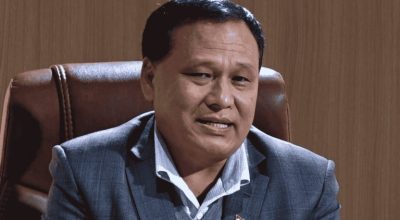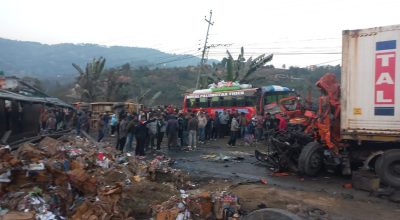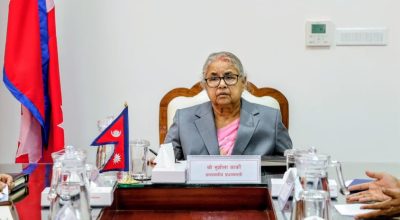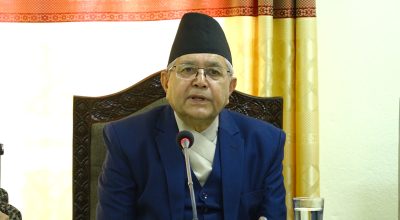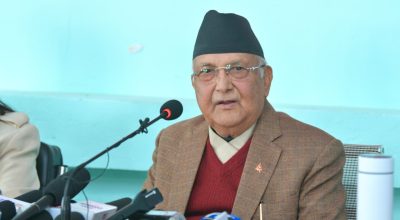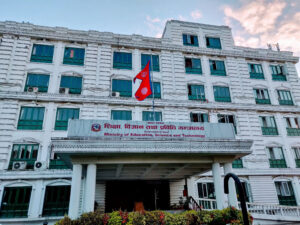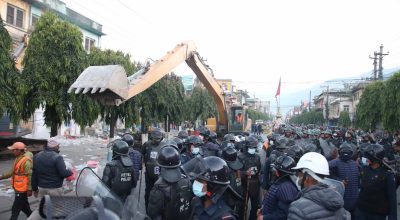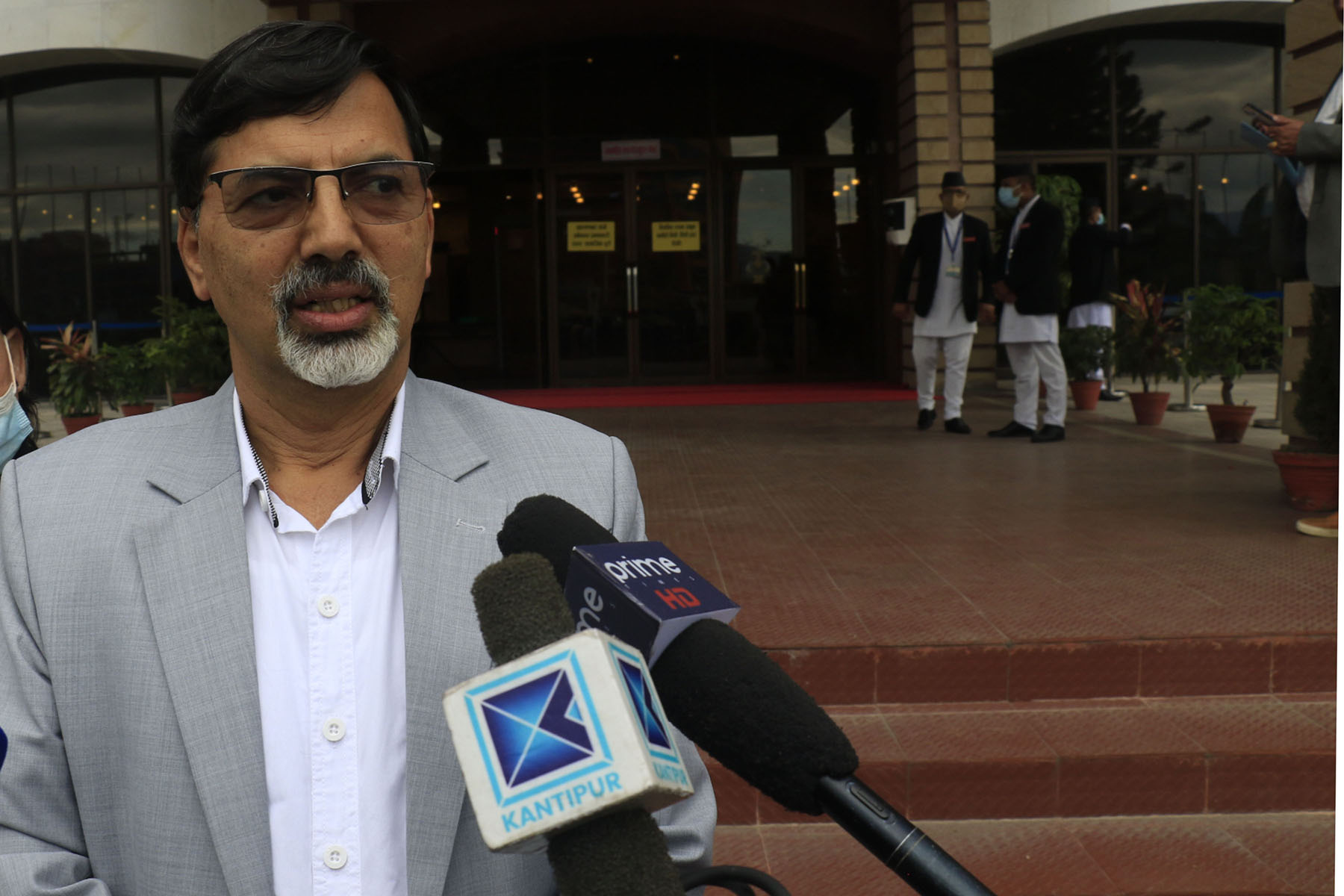
KATHMANDU: The incumbent government has allocated Rs 1.6 trillion for the current fiscal year, 2021/22 through the replacement bill on finance tabled at the parliament meeting on Friday. Tabling the bill at the House of Representatives meeting, Finance Minister Janardan Sharma said it would help implement policies and programmes for the current FY.
Of the total allocated amounts, Rs 677 billion (41.42 percent) goes for current spending, and Rs 378 billion (23.16 percent) for capital expenditure.
Likewise, Rs 189 billion (11.60 percent) has been allocated for fiscal management and Rs 387 billion (23.72 percent) for handover to local and provincial levels.
Under fiscal handover, Rs 325.07 billion (84.11 percent) alongside equalisation grants in current expenditure has been set aside and Rs 61.5 billion (15.89 percent) under capital spending.
For the estimated expenditures for this fiscal, Rs 1050.08 billion would be borne from revenue collection while Rs 59.9 billion from foreign grants.
Portions of domestic and foreign loans have been decreased by approximately Rs 37 billion and while the current expenditure has been slashed by 10 percent.
There has been an arrangement for forming a think-tank at the Finance Ministry based on study, research and analysis, according to the announcement Finance Minister Sharma made.
Coalition govt budget: From economic relief to additional social security
The government has come up with a measure to cut off all meeting allowances under the recurrent costs and subsequently utilize the savings of Rs 5 billion for the procurement of vaccines against COVID-19.
In the Friday meeting of the House of Representatives (HoR), Finance Minister Janardan Sharma presented a substitution bill of the budget of the current fiscal year which announced curtailment of meeting allowance, fuel, maintenance, staff training cost, skills development and public awareness training and workshop costs, programme costs, monitoring and evaluation costs, visit costs and miscellaneous programme costs at a minimum rate of ten percent.
The amount of Rs 5 billion to be saved from the proposed austerity measure would be utilized to purchase vaccines, shared Finance Minster Sharma. The bill tabled in the parliament on Friday has substituted the budget introduced earlier by the erstwhile government through ordinance on May 29.
The then KP Sharma Oli-led government had dissolved the HoR on May 25 when preparation was underway to call the parliamentary session.
It was presumed that the budget unveiled through ordinance earlier would be substituted following the formation of Nepali Congress President Sher Bahadur Deuba-led government.
Monthly allowance of Rs 5,000 to acute disease survivors
The incumbent government has announced providing Rs 5,000 per month to each of those having undergone kidney transplant, all types of cancer survivors and patients with spinal injuries as treatment and medicine support. This would render a relief to a large number of kidney patients and cancer survivors.
The substitution bill has also made arrangement to provide relief to the families who had sacrificed in different political movements. The families of those devoting their lives to the people’s movement, people’s war, Madhes unrest and various political movements would receive Rs 3,000 each, the Minister informed.
Among other new measures included in the substituted bill are Rs 10,000 each to the coronavirus-infected ones from low-income family and working in the unorganized sector for one time, providing subsidized grant to 500,000 disadvantaged families who lost their employment and income generation opportunities.
Necessary preparation is underway to distribute this grant amount to the needy families within mid-October in coordination with the local level. The government has increased the coverage of agro insurance and livestock insurance so as to attract farmers in this sector.
Likewise, the Finance Minister announced to arrange food in at least 10 areas of Kathmandu Valley in coordination with social development organization for the convenience of the indigent people.
The government has mooted to develop a museum to showcase the history of frontline leaders who took leadership in the historical people’s movement, people’s war and Madhes unrest.





